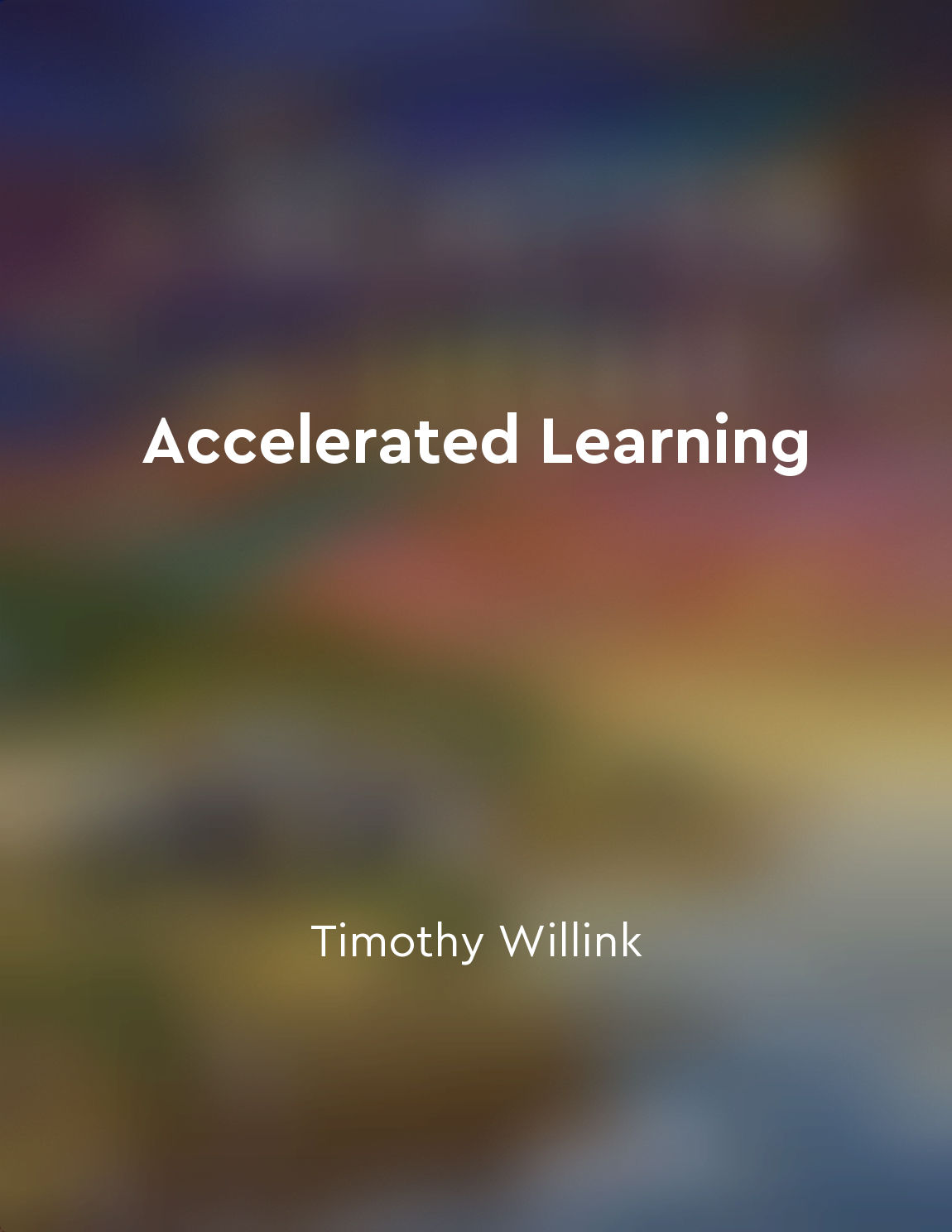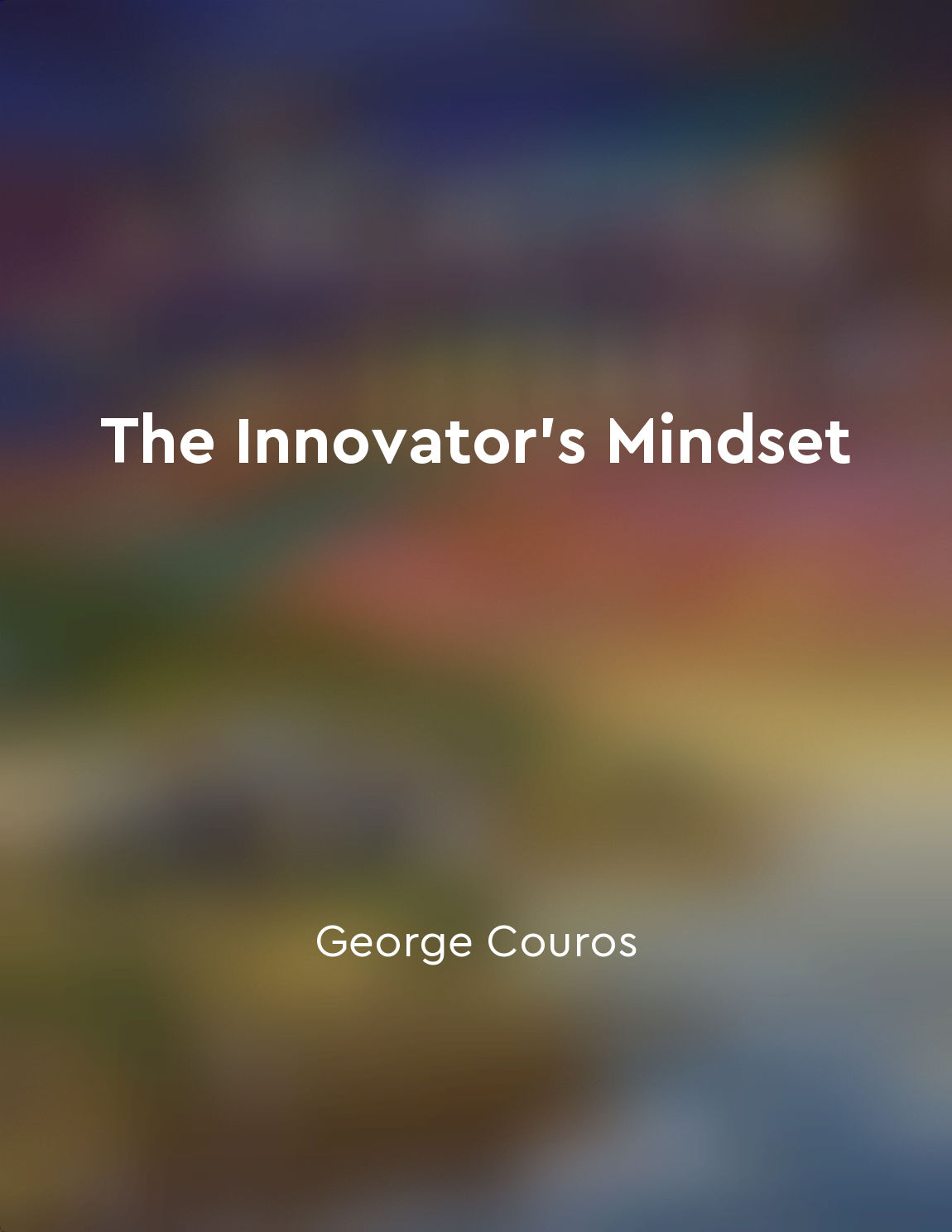Learning is a shared experience from "summary" of Action Research for Educational Change by John Elliot
The idea that learning is a shared experience is central to the process of action research for educational change. This concept emphasizes the importance of collaboration and interaction among teachers, students, and other stakeholders in the educational setting. It suggests that learning does not occur in isolation, but rather through meaningful connections and relationships with others. When learning is viewed as a shared experience, it challenges traditional notions of education that focus on individual achievement and competition. Instead, it promotes a more inclusive and collaborative approach to teaching and learning. In this context, teachers are seen as facilitators of learning rather than mere transmitters of knowledge. They work together with students to create a supportive and engaging learning environment where everyone's ideas and perspectives are valued. By recognizing learning as a shared experience, educators can tap into the collective intelligence and creativity of a group. This approach encourages dialogue, reflection, and inquiry, leading to deeper understanding and meaningful change. Through collaboration, teachers and students can co-construct knowledge, solve problems, and address issues that are relevant to their educational context. Furthermore, the concept of learning as a shared experience highlights the social nature of learning. It acknowledges that individuals learn not only from formal instruction but also from their interactions with others. By working together, students can develop important social and emotional skills such as communication, empathy, and cooperation.- The idea that learning is a shared experience is a powerful concept that has the potential to transform educational practices. By embracing collaboration, dialogue, and reflection, educators can create more engaging and meaningful learning experiences for their students. This approach not only promotes academic achievement but also fosters a sense of community and belonging within the educational setting.
Similar Posts
Practice regular selfassessment to track progress
Regular self-assessment is a critical component of effective studying. This practice involves taking the time to reflect on you...

Practice retrieval of information
Retrieval practice is a powerful learning strategy that involves actively recalling information from memory. Instead of simply ...
Homework should be meaningful and relevant to student learning
The kind of homework that helps students learn the most is the kind that's designed to help them understand what they've been t...
Aligned with NCERT guidelines
The concept of being aligned with NCERT guidelines is essential for any educational material to ensure that it meets the standa...

Adapt to Change
Adapting to change is an essential skill for success in both school and life. Change is inevitable, and being able to adjust to...
Teachers must cultivate selfcare practices to avoid burnout
Teachers who neglect self-care practices are at risk of burnout. This is a reality that many educators face in their careers. B...
Encourage student participation and engagement
To establish a dynamic learning environment, it is essential to foster student participation and engagement. When students are ...
Encouraging problemsolving and decision-making skills
When we create an environment that fosters problem-solving and decision-making skills in our children, we are helping them deve...
Students should be encouraged to seek out knowledge and understanding for their own sake, not just to earn a grade
Encouraging students to pursue knowledge and understanding for its own inherent value, rather than merely to achieve a particul...

Champion a culture of lifelong learning
One of the key aspects of fostering innovation in any organization is the cultivation of a culture that values and encourages l...

